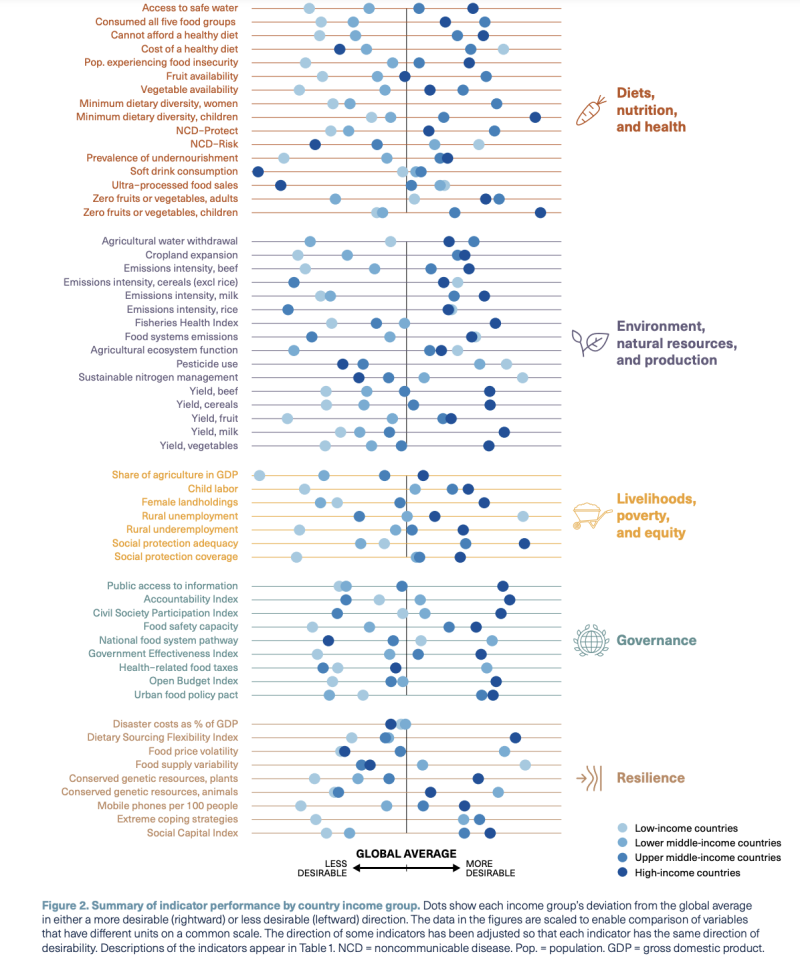The Food Systems Countdown Initiative aims to monitor the state of food systems transformation through relevant data, independent of any established monitoring processes.
Such monitoring can help align decision-makers around key priorities, incentivize action, hold stakeholders accountable, sustain commitment by demonstrating progress, and enable course corrections.
The Initiative is producing annual publications to measure, assess, and track the performance of global food systems toward 2030 and the conclusion of the Sustainable Development Goals.
This policy brief – the first in a planned annual series – presents the Countdown indicators depicting the current state of national food systems. In doing so, it provides a starting point for future work to identify where things can be done better, provide ideas for how to get there, and inspire stakeholders (in particular, policymakers) that progress can and must be made.
The Countdown baseline data show that the world’s food systems face many shared challenges. For example, in 54 countries (of 140 with data), over half the population cannot afford a healthy diet. Only 29 countries (of 187 with data) explicitly recognize the right to food, and only 4 countries approach equitable distribution of landownership between men and women. There is also considerable inequality in indicator performance across countries (and likely within countries, although subnational dimensions are not yet systematically tracked globally).

An analysis of the Food Systems Countdown initiative is also available here.
| Year of publication | |
| Authors | |
| Geographic coverage | Global |
| Originally published | 15 Jan 2024 |
| Related organisation(s) | FAO - Food and Agriculture Organization of the United Nations |
| Knowledge service | Metadata | Global Food and Nutrition Security | Sustainable Food Systems | Food systems transformation |
| Digital Europa Thesaurus (DET) | policymakingdata collectionnutritiondata processingIndicatordatabaseenvironmental indicatoragricultural policy |
